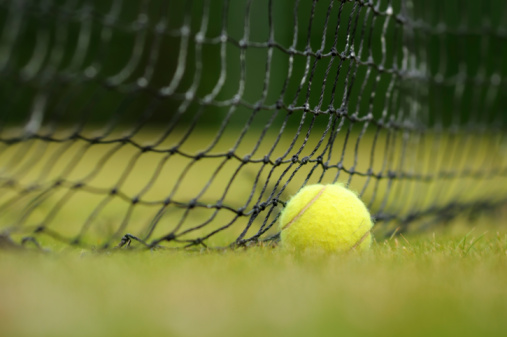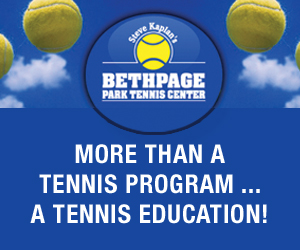Mythbusters: Some Recruiting Words of Wisdom From Long Island Stars Who Have Recently Finished Their College Careers

A great source of untapped recruiting wisdom is from former Long Island players who have finished college. These young adults have all the experience of college and are still young enough to relate to today’s junior players. I asked two Long Island-bred college graduates some recruiting questions and tapped on their wisdom. Our panel for this discussion includes Allison Dender from Washington University in St. Louis (Class of 2010) and Ryann Cutillo from Wake Forest University (Class of 2012).
Looking back at your college career, was there any advice you were given as a high school student regarding choosing a college that you now disagree with?
 Allison Dender: I learned that Division I and Division II teams are not necessarily stronger than Division III teams.My team and other Division III schools regularly beat Division I and Division II schools. It is important to understand the quality of the tennis program and the schools that they compete with, outside of what division the school presides.
Allison Dender: I learned that Division I and Division II teams are not necessarily stronger than Division III teams.My team and other Division III schools regularly beat Division I and Division II schools. It is important to understand the quality of the tennis program and the schools that they compete with, outside of what division the school presides.

Ryann Cutillo: When I was choosing a college, I was told that, aside from the school’s academic and tennis rankings/standings, that the coach and team should be a major part in my decision. While this is true, because you will spend a lot of time with your teammates and coaches, I think an aspect of college life that recruits don’t focus enough on is the school’s social life and atmosphere. Official visits are so important, because they allow you to experience what it will be like to make friends, socialize, and go out as a student in college. Tennis will be a major part of the college experience, so team dynamics are very important, but I think it is imperative to focus on how you think you will fit in with the entire school atmosphere, location and student body.
Were you always happy with your college decision or was there ever a time while in college that you questioned your choice?
Cutillo: For the most part, I was extremely happy with my college decision. There were a lot of ups and downs with the team because of a coaching change. It was difficult getting used to a new atmosphere and coaching style, but I think this was a great learning experience for me. Being part of a team is such a great experience, and I think the challenges I faced made me a better person.
Dender: I had a great college experience, so I was always happy with my decision to go to Washington University in St. Louis. I played highly-competitive NCAA tennis, but as a student-athlete, I was also able to pursue academic and social interests off the tennis court. I had amazing teammates who made my college experience very special, and who are still some of my best friends.
Is there anything you didn’t realize about your whole tennis experience until after you graduated?
Dender: Since graduating, I have seen how being a college athlete has made me more successful in the work place. The time management skills, work ethic, flexibility, teamwork and leadership traits that are important to success in college tennis are extremely important in the real world. Furthermore, the relationships you make with your teammates and other student-athletes last well beyond your college years.
While I realized this as a senior in college, it is surprising how few players complete four years of college tennis, especially in Division III and conferences without athletic scholarships. When players get to college, they start to realize other interests that they want to pursue, which are sometimes difficult to balance with a college sport. Since graduating, I value that I went to a school that allowed me to balance different interests and play tennis. I was able to study abroad (in the summer and fall), pursue my master’s degree, two majors and a minor, and serve as president of a business organization. These experiences, in addition to my athletic endeavors, have made me more well-rounded now that I am working.
Cutillo: I didn’t realize how different tennis would be in college compared to the junior tennis experience. While I loved junior tennis, college tennis, for me, was so much more enjoyable. Being able to play for your school and your team—who are people you consider your best friends—is such an honor.
What advice would you give someone who is now playing junior tennis?
Cutillo: I would say to start looking as early as possible! While being recruited is a fun experience, it can also be overwhelming and stressful. The earlier you look into schools and start reaching out to coaches, the more you will realize what you want for your college experience. My coach urged me to start the college process very early and it was the best advice I could have received. It gave me more options because I was well ahead of the game compared to others, and I could play with a little bit less pressure and stress, which is very helpful!
Dender: My best advice is to work hard to put yourself in a position where you have a lot of options, both athletically and academically, and then make a decision that is truly the best fit for you and is what you want (not what your parents or coaches want for you).
Did you host any recruits while you were in college? Do you have any advice for high school athletes who are visiting schools?
Dender: I hosted a number of recruits my freshman year, a few of which became my teammates. My advice is to really get to know the players on the team and understand their lifestyle, including school culture, tennis schedule, social life, and academics. Spend time socially with the team and make sure you fit into the team culture, as you will definitely be spending a lot of time with them if you attend the school. Inquire about the relationship between the players and the coach. Learn if there are any limitations to what you can do outside of tennis, such as extracurricular activities, fraternities and/or sororities, or studying abroad. Speak with some upper classmen, as you are making a commitment for four years. Attend a class and ask about how academic and athletic conflicts are resolved, and if there are academic resources available to athletes.
Cutillo: I hosted many recruits on their visits. Some good experiences and some bad! The best piece of advice I can give is to be respectful and friendly to your host. There is nothing worse than trying to host someone who doesn’t give you the time of day or doesn’t seem interested. While your tennis playing abilities are very important to the coach and the team, how you socialize and interact with the girls on the team is a major part of your visit as well.
How did your coach decide spots in the lineup?
Cutillo: We had a few days a week of set play which is where the majority of our lineup was decided. On top of that, how you performed in dual matches was a major indicator as well. Some people are better practice players compared to match players, so how you perform on match day became the most important indicator of where you would play in the lineup.
Dender: There were a number of factors that went into determining the lineup and the lineup could change on a match by match basis. We played practice matches and had a lot of matches against outside competition where our coach observed our performance, efforts and attitude.






